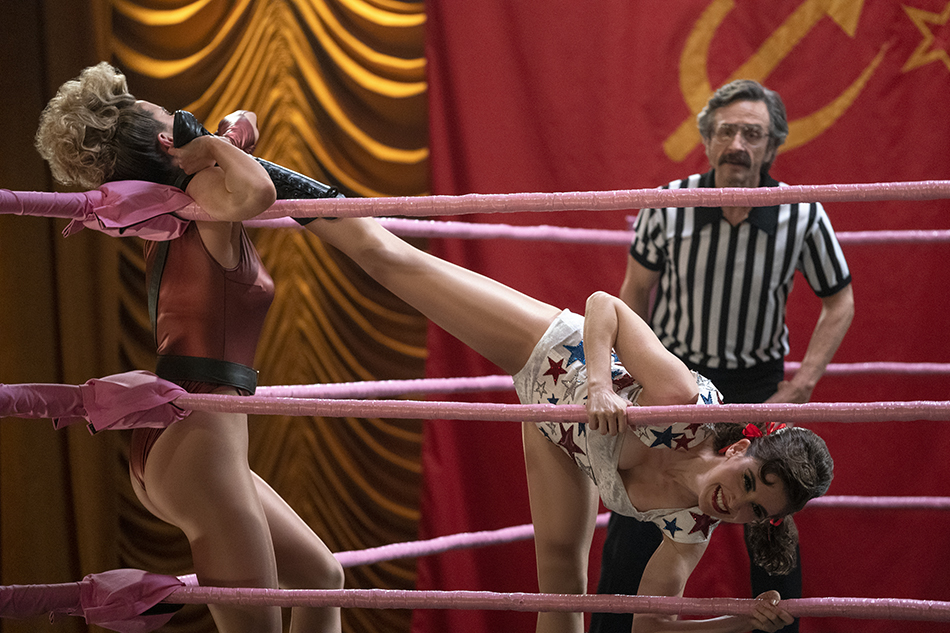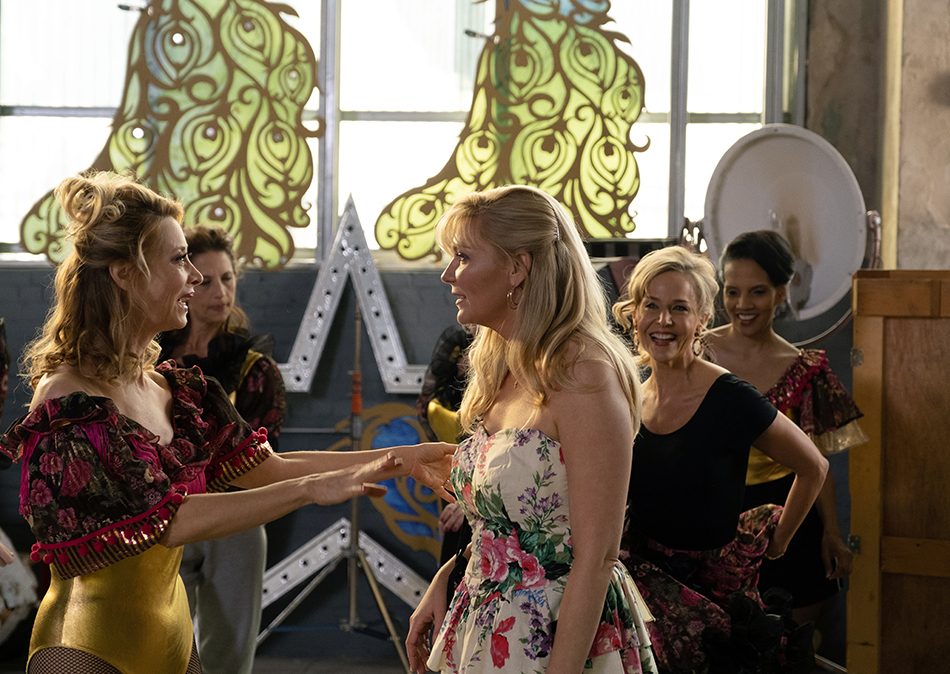COVID Cancellations Axe Promising Shows
Extra cost of doing business in 2020 may be too much for series that don’t break out

The smarter way to stay on top of broadcasting and cable industry. Sign up below
You are now subscribed
Your newsletter sign-up was successful
Among the wide array of casualties related to COVID is a batch of TV shows that, due to pandemic-related restrictions, could not get cast and crew together to shoot a new season. Several of the recently canceled shows, including Netflix’s Glow and Showtime’s On Becoming a God in Central Florida, received a renewal, but ultimately, the network decided it no longer made sense to produce a new season.
“The pandemic has continued to challenge schedules across the board, and although we have made every effort to reunite the cast and crew for a second season, that has become untenable,” said Showtime in a statement about On Becoming a God, which debuted in August 2019.
RELATED: Netflix's 'Away' Won't See Season Two
The spate of “un-renewals,” as Rolling Stone referred to them, includes wrestling dramedy GLOW, which was set to produce season four when the virus hit; Netflix teen show The Society, which lasted for one season; ABC’s Cobie Smulders drama Stumptown, which was poised to produce season two; and truTV’s Andrea Savage comedy I’m Sorry, which the network had renewed for a third season.
“With all of our episodes already written and partially shot, we are all still in shock and don’t have the answers,” Savage said on Twitter in late August.
While they had not received renewals, Netflix’s I Am Not Okay With This and Showtime’s The President Is Missing, based on a novel by Bill Clinton and James Patterson, were canceled for reasons related to COVID.
COVID has laid a significant cost upon production, between PPE equipment, testing and figuring out social distancing on set. As a result, veteran showrunner Neal Baer is not surprised to see the high number of surprise cancellations, calling it a “pure financial algorithmic decision” for the networks. “Does the show make enough money for the network in light of the cost increases?” he said. “It’s always a financial assessment at the end.”
The smarter way to stay on top of broadcasting and cable industry. Sign up below
Baer, whose credits include Law & Order: SVU and Designated Survivor, estimated that COVID costs might add 20% to a budget. Alex Kurtzman, executive producer on the Star Trek series, speaking on the podcast TV’s Top 5, said it tacked on an additional $300,000-$500,000 per episode.
“A bubble show may have been OK in the past,” said Chris Becker, associate professor of film, television and theater at Notre Dame. “But with a 20% COVID cost, that can be a bridge too far.”
Peaked TV?
No one knows when the vaccine arrives and when shows get back to the pre-COVID way of doing business, or if they ever do. It’s likely more series that may have been on the renewal bubble get axed. “Once it seems like a trend, the stage is set for it to keep happening,” Becker said. “It is established as an excuse.”

Network executives did not want to discuss the thought processes behind cancelling the series they’d renewed. More than just a new virus, an array of factors goes into such a decision, such as the budget increases for cast with each new season of a show. “I don’t think they just willy-nilly cancel a show,” Baer said. “The networks are in it because they want to make shows that people like and are successful under the many measures of what makes something successful.”
Time will tell what the COVID cancellations mean for the peak TV era. There are around 500 scripted shows on television, and for years, people have wondered when that number will decrease. "This is simply too much television," John Landgraf, FX Networks chairman, said back in 2015.
RELATED: ABC Cancels Drama ‘Stumptown’
Some networks, such as Pop TV and A&E, began cutting back their scripted slates before COVID. Others are likely to follow. “For a number of years now, people have said the bubble will burst, this can’t be sustained,” said Becker. “Everyone wonders what the catalyst will be. Maybe this is the excuse — we’re going to dial back now.”
Having a series that a producer or cast or crew member has poured their heart into get cancelled is a soul-crushing experience. Having a series canceled due to an unforeseen enemy such as COVID is even more wrenching.
But a hardy TV veteran moves on. “It’s disappointing, but there’s a lot of disappointment in life,” Baer said. “When you engage with Hollywood, there are no guarantees.”
Michael Malone is content director at B+C and Multichannel News. He joined B+C in 2005 and has covered network programming, including entertainment, news and sports on broadcast, cable and streaming; and local broadcast television, including writing the "Local News Close-Up" market profiles. He also hosted the podcasts "Busted Pilot" and "Series Business." His journalism has also appeared in The New York Times, The L.A. Times, The Boston Globe and New York magazine.

